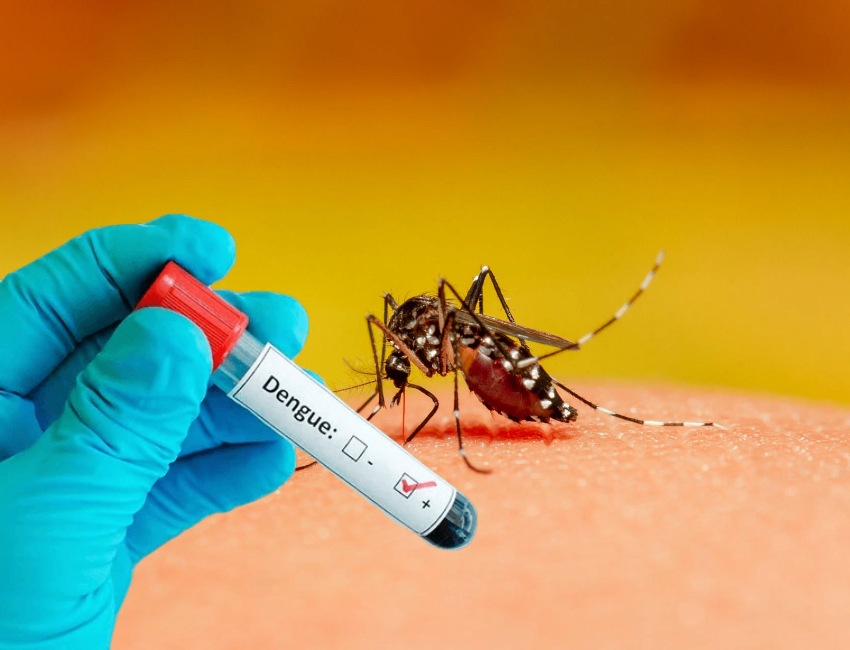
Everything to know about Dengue Fever and how to prevent it
What is Dengue Fever?
Dengue (DENG-gey) fever is a mosquito-borne illness that occurs worldwide in tropical and subtropical areas. Mild fever is characterised by a high fever and flu-like symptoms. Dengue hemorrhagic fever, also known as severe dengue fever, can result in severe bleeding, a sudden drop in blood pressure (shock), and death.
Every year, millions of people become infected with dengue. Southeast Asia, the western Pacific islands, Latin America, and Africa are the most affected by this fever. However, the disease has spread to new areas, including local outbreaks in Europe and the southern United States.
Dengue fever vaccines are being developed by researchers. For the time being, in areas where dengue fever is common, the best ways to avoid infection are to avoid mosquito bites and to take steps to reduce the mosquito population.
Also Read: India confirms Asia’s first monkeypox death
Symptoms
Many people have no signs or symptoms of the fever. When symptoms do appear, they can be confused with other illnesses, such as the flu, and usually appear four to ten days after being bitten by an infected mosquito. Moreover, it causes a high fever of 104 degrees Fahrenheit (40 degrees Celsius) as well as any of the following signs and symptoms:
- Headache Muscle,
- Bone or joint pain
- Nausea
- Vomiting
- Pain behind the eyes
- Swollen glands Rash
Is Dengue Fever life threatening?
Most people recover in about a week. Symptoms can worsen and become life-threatening in some cases. This condition is known as severe dengue, dengue hemorrhagic fever, or dengue shock syndrome.
Furthermore, when your blood vessels become damaged and leaky, you develop severe dengue. In addition, the number of clot-forming cells (platelets) in your blood decreases. Shock, internal bleeding, organ failure, and even death can result from this.
Also Read: Miracle drug shows 100% remission for all cancer patients in drug trial
Moreover severe dengue fever, which is a life-threatening emergency, can manifest quickly. The following symptoms may appear within the first day or two after your fever has subsided:
-Severe stomach pain
-Persistent vomiting
-Bleeding from your gums or nose
-Blood in your urine, stools or vomit
-Bleeding under the skin, which might look like bruising
– Difficult or rapid breathing
-Fatigue
-Irritability or restlessness
When to see a doctor in Dengue?
Severe dengue fever is a medical emergency that can be fatal. If you have recently visited an area with Dengue fever. Or if you develop any of the warning signs, seek immediate medical attention. Severe stomach pain, vomiting, difficulty breathing, or blood in your nose, gums, vomit, or stools are all warning signs.
Dengue fever in Pakistan
The cases have increased in recent weeks in the city, where civic conditions have deteriorated due to heavy rains over the last two months, it was revealed on Monday.
Senior health officials stated that a large number of dengue patients were reporting to doctors these days, and that people experiencing sore throats and high-grade fevers should get tested for the mosquito-borne disease within 24 hours of developing these signs and symptoms.
Also Read: What is Monkey Pox? Everything to know about the virus!
Do not self medicate!
They warned that poor patient management by any (unqualified) doctor, as well as self-medication, including the use of antibiotics, steroids, and even common medicines, which actually reduced platelet levels, could complicate the case and lead to death.
According to sources, the Sindh Infectious Disease Hospital and Research Centre is currently treating the most dengue patients, 45. Furthermore, according to the sources, 45 children are also treated at the facility for dengue, pneumonia, meningitis, enteric fever, dysentery, and diarrhoea.
In the first five days of September, the health department recorded 347 cases, with the majority of the cases reported in Karachi East (113). 1,265 cases are reported in August 2022.
Have something to add to the story? Comment down below!




